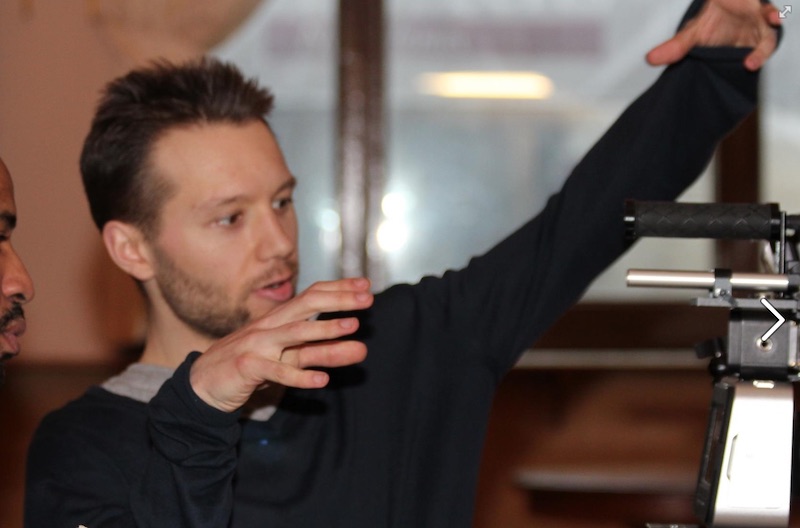What does it mean to be a follower of the Buddha’s path? The Enlightened One was, after all, the Prime Wanderer, the First Monk. His life, no matter how shadowy from a historical perspective, defines how we see Buddhism and its subsequent presence in human history. In theory, he is not really unique at all, and that anyone who puts their mind to it can become just like him. German-born movie director Jesco Puluj went on a journey to meet a series of people who had devoted their lives to this spirit: monastics, but monastics whose lifestyle choices could add some nuance and colour to Jesco’s portrayal of the Buddhist path.
Although he began filmmaking as a hobby, the six-month period of his shooting The Odd Monk, his first documentary about a series of monastics based in different countries, was prompted by a typically quirky and heartwarming encounter: his meeting with a Canadian-born monk in the Thai forest tradition whose best friend was a vegan cat. This encounter spurred him to travel the world meeting different Buddhist monastics and shoot this film. It is a true globetrotter of a film, covering Botswana, Mongolia, China, Thailand, Japan, South Africa, Ireland, and Nepal. It has been a truly epic journey of discovering the world and oneself.
Jesco highlighted to me in the film how diverse the lifestyles and habits of the monks are. This is not simply about the varying schools of Buddhism, but the way of life and expression of the Dharma that these monks embody. “My film takes audiences through the modern world of Buddhism. It’s intentionally subjective, quite a personal journey. Yet all my film subjects share Buddhism’s positive outlook: its openness, positivity, friendliness. Yet they are different in how they express it. For example, in Japan, society is so far removed from religion that simply performing rituals and chanting ceremonies at temples will not be sufficient for the clergy,” he says. His Japanese subjects are monks who also bartend and play in a monastic rock band.
“I see the Buddha as an example of values, rather than an object of worship,” says Jesco. “And this shines through in how the Buddhists carry themselves and project their message. Buddhists do not behave like missionaries, but they are present and ready to help sentient beings. They are more inviting rather than preaching.” This kindness and wisdom manifests in the people he encounters throughout his documentary. “There was a real enlightened energy about them. It’s hard to believe that people are able to be this contented. I was so inspired by how they support the Buddhist message.”

I share Jesco’s view that there is far too small of a Buddhist presence in not just fiction, but also pop culture in general. To this end, Jesco’s next objective is to make a Buddhist comedy, which he sees as engaging and relatable, while also allowing him more artistic freedom. “Enlightenment is too heavy and philosophical,” he observes. “I think we need a character of the Buddha most audiences can relate to. His pre-Nirvana life would be most interesting. What did he think? What did he do? I think there’s a real hunger to see characters as flawed and real. The pre-Nirvana Buddha will be able to help give us a taste of this.”
His upcoming film will be called Buddha is Back, and its blurb is as follows: “It’s been 2500 years since Buddha died. Has the world become a better place since he left? Well, he’s back to find out! In the thief Octavio he meets his match and the two go on a road trip together. Soon, the unimaginable happens: Buddha loses his enlightenment and before he knows it he has become a criminal himself… The movie is a religious satire, examining our ongoing obsession with religion and the difficult question: Which God or guru is the ultimate one? And do Buddhists really never get angry?”
The more dour among us might feel apprehensive about this premise. It is certainly true that religion and comedy have always been an explosive mix. However, as Buddhism moves, very gradually, into the mainstream, perhaps the answer for pop culture today is not to be reticent, but bold.
See more
Jesco Puluj
The Odd Monk
The Buddha is Back
Related blogs from Buddhistdoor Global
Pop Culture: The Case for a Greater Buddhist Presence

